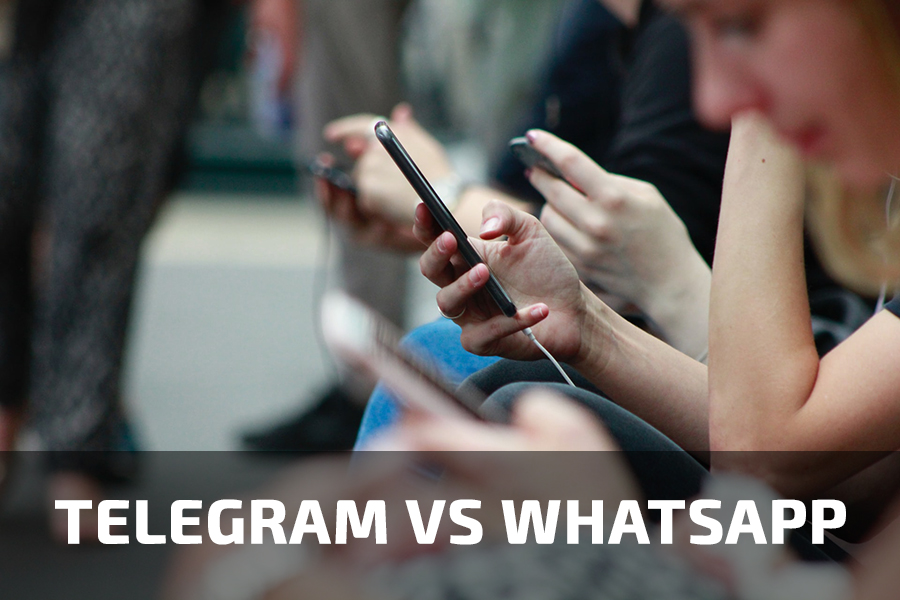Страна
[{"country_id":36,"country_name_en":"\u0410\u0432\u0441\u0442\u0440\u0430\u043b\u0438\u044f"},{"country_id":40,"country_name_en":"\u0410\u0432\u0441\u0442\u0440\u0438\u044f"},{"country_id":31,"country_name_en":"\u0410\u0437\u0435\u0440\u0431\u0430\u0439\u0434\u0436\u0430\u043d"},{"country_id":8,"country_name_en":"\u0410\u043b\u0431\u0430\u043d\u0438\u044f"},{"country_id":12,"country_name_en":"\u0410\u043b\u0436\u0438\u0440"},{"country_id":16,"country_name_en":"\u0410\u043c\u0435\u0440\u0438\u043a\u0430\u043d\u0441\u043a\u043e\u0435 \u0421\u0430\u043c\u043e\u0430"},{"country_id":660,"country_name_en":"\u0410\u043d\u0433\u0438\u043b\u044c\u044f"},{"country_id":24,"country_name_en":"\u0410\u043d\u0433\u043e\u043b\u0430"},{"country_id":20,"country_name_en":"\u0410\u043d\u0434\u043e\u0440\u0440\u0430"},{"country_id":10,"country_name_en":"\u0410\u043d\u0442\u0430\u0440\u043a\u0442\u0438\u0434\u0430"},{"country_id":28,"country_name_en":"\u0410\u043d\u0442\u0438\u0433\u0443\u0430 \u0418 \u0411\u0430\u0440\u0431\u0443\u0434\u0430"},{"country_id":32,"country_name_en":"\u0410\u0440\u0433\u0435\u043d\u0442\u0438\u043d\u0430"},{"country_id":51,"country_name_en":"\u0410\u0440\u043c\u0435\u043d\u0438\u044f"},{"country_id":533,"country_name_en":"\u0410\u0440\u0443\u0431\u0430"},{"country_id":4,"country_name_en":"\u0410\u0444\u0433\u0430\u043d\u0438\u0441\u0442\u0430\u043d"},{"country_id":44,"country_name_en":"\u0411\u0430\u0433\u0430\u043c\u044b"},{"country_id":50,"country_name_en":"\u0411\u0430\u043d\u0433\u043b\u0430\u0434\u0435\u0448"},{"country_id":52,"country_name_en":"\u0411\u0430\u0440\u0431\u0430\u0434\u043e\u0441"},{"country_id":48,"country_name_en":"\u0411\u0430\u0445\u0440\u0435\u0439\u043d"},{"country_id":112,"country_name_en":"\u0411\u0435\u043b\u0430\u0440\u0443\u0441\u044c"},{"country_id":84,"country_name_en":"\u0411\u0435\u043b\u0438\u0437"},{"country_id":56,"country_name_en":"\u0411\u0435\u043b\u044c\u0433\u0438\u044f"},{"country_id":204,"country_name_en":"\u0411\u0435\u043d\u0438\u043d"},{"country_id":60,"country_name_en":"\u0411\u0435\u0440\u043c\u0443\u0434\u044b"},{"country_id":100,"country_name_en":"\u0411\u043e\u043b\u0433\u0430\u0440\u0438\u044f"},{"country_id":68,"country_name_en":"\u0411\u043e\u043b\u0438\u0432\u0438\u044f"},{"country_id":535,"country_name_en":"\u0411\u043e\u043d\u044d\u0439\u0440, \u0421\u0438\u043d\u0442-\u042d\u0441\u0442\u0430\u0442\u0438\u0443\u0441 \u0418 \u0421\u0430\u0431\u0430"},{"country_id":70,"country_name_en":"\u0411\u043e\u0441\u043d\u0438\u044f \u0438 \u0433\u0435\u0440\u0446\u0435\u0433\u043e\u0432\u0438\u043d\u0430"},{"country_id":72,"country_name_en":"\u0411\u043e\u0442\u0441\u0432\u0430\u043d\u0430"},{"country_id":76,"country_name_en":"\u0411\u0440\u0430\u0437\u0438\u043b\u0438\u044f"},{"country_id":86,"country_name_en":"\u0411\u0440\u0438\u0442\u0430\u043d\u0441\u043a\u0430\u044f \u0422\u0435\u0440\u0440\u0438\u0442\u043e\u0440\u0438\u044f \u0412 \u0418\u043d\u0434\u0438\u0439\u0441\u043a\u043e\u043c \u041e\u043a\u0435\u0430\u043d\u0435"},{"country_id":96,"country_name_en":"\u0411\u0440\u0443\u043d\u0435\u0439-\u0414\u0430\u0440\u0443\u0441\u0441\u0430\u043b\u0430\u043c"},{"country_id":854,"country_name_en":"\u0411\u0443\u0440\u043a\u0438\u043d\u0430-\u0424\u0430\u0441\u043e"},{"country_id":108,"country_name_en":"\u0411\u0443\u0440\u0443\u043d\u0434\u0438"},{"country_id":64,"country_name_en":"\u0411\u0443\u0442\u0430\u043d"},{"country_id":901,"country_name_en":"\u0412\u0430\u043d\u0443\u0430\u0442\u0443"},{"country_id":348,"country_name_en":"\u0412\u0435\u043d\u0433\u0440\u0438\u044f"},{"country_id":862,"country_name_en":"\u0412\u0435\u043d\u0435\u0441\u0443\u044d\u043b\u0430, \u0411\u043e\u043b\u0438\u0432\u0430\u0440\u0438\u0430\u043d\u0441\u043a\u0430\u044f \u0420\u0435\u0441\u043f\u0443\u0431\u043b\u0438\u043a\u0430"},{"country_id":92,"country_name_en":"\u0412\u0438\u0440\u0433\u0438\u043d\u0441\u043a\u0438\u0435 \u041e\u0441\u0442\u0440\u043e\u0432\u0430, \u0411\u0440\u0438\u0442\u0430\u043d\u0441\u043a\u0438\u0435"},{"country_id":850,"country_name_en":"\u0412\u0438\u0440\u0433\u0438\u043d\u0441\u043a\u0438\u0435 \u041e\u0441\u0442\u0440\u043e\u0432\u0430, \u0421\u0448\u0430"},{"country_id":704,"country_name_en":"\u0412\u044c\u0435\u0442\u043d\u0430\u043c"},{"country_id":266,"country_name_en":"\u0413\u0430\u0431\u043e\u043d"},{"country_id":332,"country_name_en":"\u0413\u0430\u0438\u0442\u0438"},{"country_id":328,"country_name_en":"\u0413\u0430\u0439\u0430\u043d\u0430"},{"country_id":270,"country_name_en":"\u0413\u0430\u043c\u0431\u0438\u044f"},{"country_id":288,"country_name_en":"\u0413\u0430\u043d\u0430"},{"country_id":312,"country_name_en":"\u0413\u0432\u0430\u0434\u0435\u043b\u0443\u043f\u0430"},{"country_id":320,"country_name_en":"\u0413\u0432\u0430\u0442\u0435\u043c\u0430\u043b\u0430"},{"country_id":324,"country_name_en":"\u0413\u0432\u0438\u043d\u0435\u044f"},{"country_id":624,"country_name_en":"\u0413\u0432\u0438\u043d\u0435\u044f-\u0411\u0438\u0441\u0430\u0443"},{"country_id":276,"country_name_en":"\u0413\u0435\u0440\u043c\u0430\u043d\u0438\u044f"},{"country_id":831,"country_name_en":"\u0413\u0435\u0440\u043d\u0441\u0438"},{"country_id":292,"country_name_en":"\u0413\u0438\u0431\u0440\u0430\u043b\u0442\u0430\u0440"},{"country_id":340,"country_name_en":"\u0413\u043e\u043d\u0434\u0443\u0440\u0430\u0441"},{"country_id":344,"country_name_en":"\u0413\u043e\u043d\u043a\u043e\u043d\u0433"},{"country_id":308,"country_name_en":"\u0413\u0440\u0435\u043d\u0430\u0434\u0430"},{"country_id":304,"country_name_en":"\u0413\u0440\u0435\u043d\u043b\u0430\u043d\u0434\u0438\u044f"},{"country_id":300,"country_name_en":"\u0413\u0440\u0435\u0446\u0438\u044f"},{"country_id":268,"country_name_en":"\u0413\u0440\u0443\u0437\u0438\u044f"},{"country_id":316,"country_name_en":"\u0413\u0443\u0430\u043c"},{"country_id":208,"country_name_en":"\u0414\u0430\u043d\u0438\u044f"},{"country_id":832,"country_name_en":"\u0414\u0436\u0435\u0440\u0441\u0438"},{"country_id":262,"country_name_en":"\u0414\u0436\u0438\u0431\u0443\u0442\u0438"},{"country_id":212,"country_name_en":"\u0414\u043e\u043c\u0438\u043d\u0438\u043a\u0430"},{"country_id":214,"country_name_en":"\u0414\u043e\u043c\u0438\u043d\u0438\u043a\u0430\u043d\u0441\u043a\u0430\u044f \u0420\u0435\u0441\u043f\u0443\u0431\u043b\u0438\u043a\u0430"},{"country_id":894,"country_name_en":"\u0417\u0430\u043c\u0431\u0438\u044f"},{"country_id":732,"country_name_en":"\u0417\u0430\u043f\u0430\u0434\u043d\u0430\u044f \u0421\u0430\u0445\u0430\u0440\u0430"},{"country_id":716,"country_name_en":"\u0417\u0438\u043c\u0431\u0430\u0431\u0432\u0435"},{"country_id":376,"country_name_en":"\u0418\u0437\u0440\u0430\u0438\u043b\u044c"},{"country_id":356,"country_name_en":"\u0418\u043d\u0434\u0438\u044f"},{"country_id":360,"country_name_en":"\u0418\u043d\u0434\u043e\u043d\u0435\u0437\u0438\u044f"},{"country_id":400,"country_name_en":"\u0418\u043e\u0440\u0434\u0430\u043d\u0438\u044f"},{"country_id":368,"country_name_en":"\u0418\u0440\u0430\u043a"},{"country_id":364,"country_name_en":"\u0418\u0440\u0430\u043d, \u0418\u0441\u043b\u0430\u043c\u0441\u043a\u0430\u044f \u0420\u0435\u0441\u043f\u0443\u0431\u043b\u0438\u043a\u0430"},{"country_id":372,"country_name_en":"\u0418\u0440\u043b\u0430\u043d\u0434\u0438\u044f"},{"country_id":352,"country_name_en":"\u0418\u0441\u043b\u0430\u043d\u0434\u0438\u044f"},{"country_id":724,"country_name_en":"\u0418\u0441\u043f\u0430\u043d\u0438\u044f"},{"country_id":380,"country_name_en":"\u0418\u0442\u0430\u043b\u0438\u044f"},{"country_id":887,"country_name_en":"\u0419\u0435\u043c\u0435\u043d"},{"country_id":132,"country_name_en":"\u041a\u0430\u0431\u043e-\u0412\u0435\u0440\u0434\u0435"},{"country_id":398,"country_name_en":"\u041a\u0430\u0437\u0430\u0445\u0441\u0442\u0430\u043d"},{"country_id":116,"country_name_en":"\u041a\u0430\u043c\u0431\u043e\u0434\u0436\u0430"},{"country_id":120,"country_name_en":"\u041a\u0430\u043c\u0435\u0440\u0443\u043d"},{"country_id":124,"country_name_en":"\u041a\u0430\u043d\u0430\u0434\u0430"},{"country_id":634,"country_name_en":"\u041a\u0430\u0442\u0430\u0440"},{"country_id":404,"country_name_en":"\u041a\u0435\u043d\u0438\u044f"},{"country_id":196,"country_name_en":"\u041a\u0438\u043f\u0440"},{"country_id":417,"country_name_en":"\u041a\u0438\u0440\u0433\u0438\u0437\u0438\u044f"},{"country_id":296,"country_name_en":"\u041a\u0438\u0440\u0438\u0431\u0430\u0442\u0438"},{"country_id":156,"country_name_en":"\u041a\u0438\u0442\u0430\u0439"},{"country_id":166,"country_name_en":"\u041a\u043e\u043a\u043e\u0441\u043e\u0432\u044b\u0435 (\u041a\u0438\u043b\u0438\u043d\u0433) \u041e\u0441\u0442\u0440\u043e\u0432\u0430"},{"country_id":170,"country_name_en":"\u041a\u043e\u043b\u0443\u043c\u0431\u0438\u044f"},{"country_id":174,"country_name_en":"\u041a\u043e\u043c\u043e\u0440\u044b"},{"country_id":178,"country_name_en":"\u041a\u043e\u043d\u0433\u043e"},{"country_id":180,"country_name_en":"\u041a\u043e\u043d\u0433\u043e, \u0414\u0435\u043c\u043e\u043a\u0440\u0430\u0442\u0438\u0447\u0435\u0441\u043a\u0430\u044f \u0420\u0435\u0441\u043f\u0443\u0431\u043b\u0438\u043a\u0430"},{"country_id":408,"country_name_en":"\u041a\u043e\u0440\u0435\u044f, \u041d\u0430\u0440\u043e\u0434\u043d\u043e-\u0414\u0435\u043c\u043e\u043a\u0440\u0430\u0442\u0438\u0447\u0435\u0441\u043a\u0430\u044f \u0420\u0435\u0441\u043f\u0443\u0431\u043b\u0438\u043a\u0430"},{"country_id":410,"country_name_en":"\u041a\u043e\u0440\u0435\u044f, \u0420\u0435\u0441\u043f\u0443\u0431\u043b\u0438\u043a\u0430"},{"country_id":900,"country_name_en":"\u041a\u043e\u0441\u043e\u0432\u043e"},{"country_id":188,"country_name_en":"\u041a\u043e\u0441\u0442\u0430-\u0420\u0438\u043a\u0430"},{"country_id":384,"country_name_en":"\u041a\u043e\u0442 \u0434\u2019\u0418\u0432\u0443\u0430\u0440"},{"country_id":192,"country_name_en":"\u041a\u0443\u0431\u0430"},{"country_id":414,"country_name_en":"\u041a\u0443\u0432\u0435\u0439\u0442"},{"country_id":531,"country_name_en":"\u041a\u044e\u0440\u0430\u0441\u0430\u043e"},{"country_id":418,"country_name_en":"\u041b\u0430\u043e\u0441\u0441\u043a\u0430\u044f \u041d\u0430\u0440\u043e\u0434\u043d\u043e-\u0414\u0435\u043c\u043e\u043a\u0440\u0430\u0442\u0438\u0447\u0435\u0441\u043a\u0430\u044f \u0420\u0435\u0441\u043f\u0443\u0431\u043b\u0438\u043a\u0430"},{"country_id":428,"country_name_en":"\u041b\u0430\u0442\u0432\u0438\u044f"},{"country_id":426,"country_name_en":"\u041b\u0435\u0441\u043e\u0442\u043e"},{"country_id":430,"country_name_en":"\u041b\u0438\u0431\u0435\u0440\u0438\u044f"},{"country_id":422,"country_name_en":"\u041b\u0438\u0432\u0430\u043d"},{"country_id":434,"country_name_en":"\u041b\u0438\u0432\u0438\u044f"},{"country_id":440,"country_name_en":"\u041b\u0438\u0442\u0432\u0430"},{"country_id":438,"country_name_en":"\u041b\u0438\u0445\u0442\u0435\u043d\u0448\u0442\u0435\u0439\u043d"},{"country_id":442,"country_name_en":"\u041b\u044e\u043a\u0441\u0435\u043c\u0431\u0443\u0440\u0433"},{"country_id":480,"country_name_en":"\u041c\u0430\u0432\u0440\u0438\u043a\u0438\u0439"},{"country_id":478,"country_name_en":"\u041c\u0430\u0432\u0440\u0438\u0442\u0430\u043d\u0438\u044f"},{"country_id":450,"country_name_en":"\u041c\u0430\u0434\u0430\u0433\u0430\u0441\u043a\u0430\u0440"},{"country_id":175,"country_name_en":"\u041c\u0430\u0439\u043e\u0442\u0442\u0430"},{"country_id":446,"country_name_en":"\u041c\u0430\u043a\u0430\u043e"},{"country_id":807,"country_name_en":"\u041c\u0430\u043a\u0435\u0434\u043e\u043d\u0438\u044f"},{"country_id":454,"country_name_en":"\u041c\u0430\u043b\u0430\u0432\u0438"},{"country_id":458,"country_name_en":"\u041c\u0430\u043b\u0430\u0439\u0437\u0438\u044f"},{"country_id":466,"country_name_en":"\u041c\u0430\u043b\u0438"},{"country_id":581,"country_name_en":"\u041c\u0430\u043b\u044b\u0435 \u0422\u0438\u0445\u043e\u043e\u043a\u0435\u0430\u043d\u0441\u043a\u0438\u0435 \u041e\u0442\u0434\u0430\u043b\u0435\u043d\u043d\u044b\u0435 \u041e\u0441\u0442\u0440\u043e\u0432\u0430 \u0421\u043e\u0435\u0434\u0438\u043d\u0435\u043d\u043d\u044b\u0445 \u0428\u0442\u0430\u0442\u043e\u0432"},{"country_id":462,"country_name_en":"\u041c\u0430\u043b\u044c\u0434\u0438\u0432\u044b"},{"country_id":470,"country_name_en":"\u041c\u0430\u043b\u044c\u0442\u0430"},{"country_id":504,"country_name_en":"\u041c\u0430\u0440\u043e\u043a\u043a\u043e"},{"country_id":474,"country_name_en":"\u041c\u0430\u0440\u0442\u0438\u043d\u0438\u043a\u0430"},{"country_id":584,"country_name_en":"\u041c\u0430\u0440\u0448\u0430\u043b\u043b\u043e\u0432\u044b \u041e\u0441\u0442\u0440\u043e\u0432\u0430"},{"country_id":484,"country_name_en":"\u041c\u0435\u043a\u0441\u0438\u043a\u0430"},{"country_id":583,"country_name_en":"\u041c\u0438\u043a\u0440\u043e\u043d\u0435\u0437\u0438\u044f, \u0424\u0435\u0434\u0435\u0440\u0430\u0442\u0438\u0432\u043d\u044b\u0435 \u0428\u0442\u0430\u0442\u044b"},{"country_id":508,"country_name_en":"\u041c\u043e\u0437\u0430\u043c\u0431\u0438\u043a"},{"country_id":498,"country_name_en":"\u041c\u043e\u043b\u0434\u043e\u0432\u0430, \u0420\u0435\u0441\u043f\u0443\u0431\u043b\u0438\u043a\u0430"},{"country_id":492,"country_name_en":"\u041c\u043e\u043d\u0430\u043a\u043e"},{"country_id":496,"country_name_en":"\u041c\u043e\u043d\u0433\u043e\u043b\u0438\u044f"},{"country_id":500,"country_name_en":"\u041c\u043e\u043d\u0442\u0441\u0435\u0440\u0440\u0430\u0442"},{"country_id":104,"country_name_en":"\u041c\u044c\u044f\u043d\u043c\u0430"},{"country_id":516,"country_name_en":"\u041d\u0430\u043c\u0438\u0431\u0438\u044f"},{"country_id":520,"country_name_en":"\u041d\u0430\u0443\u0440\u0443"},{"country_id":524,"country_name_en":"\u041d\u0435\u043f\u0430\u043b"},{"country_id":562,"country_name_en":"\u041d\u0438\u0433\u0435\u0440"},{"country_id":566,"country_name_en":"\u041d\u0438\u0433\u0435\u0440\u0438\u044f"},{"country_id":528,"country_name_en":"\u041d\u0438\u0434\u0435\u0440\u043b\u0430\u043d\u0434\u044b"},{"country_id":558,"country_name_en":"\u041d\u0438\u043a\u0430\u0440\u0430\u0433\u0443\u0430"},{"country_id":570,"country_name_en":"\u041d\u0438\u0443\u044d"},{"country_id":554,"country_name_en":"\u041d\u043e\u0432\u0430\u044f \u0417\u0435\u043b\u0430\u043d\u0434\u0438\u044f"},{"country_id":540,"country_name_en":"\u041d\u043e\u0432\u0430\u044f \u041a\u0430\u043b\u0435\u0434\u043e\u043d\u0438\u044f"},{"country_id":578,"country_name_en":"\u041d\u043e\u0440\u0432\u0435\u0433\u0438\u044f"},{"country_id":818,"country_name_en":"\u041e\u0431\u044a\u0435\u0434\u0438\u043d\u0435\u043d\u043d\u0430\u044f \u0410\u0440\u0430\u0431\u0441\u043a\u0430\u044f \u0420\u0435\u0441\u043f\u0443\u0431\u043b\u0438\u043a\u0430 (\u0415\u0433\u0438\u043f\u0435\u0442)"},{"country_id":784,"country_name_en":"\u041e\u0431\u044a\u0435\u0434\u0438\u043d\u0435\u043d\u043d\u044b\u0435 \u0410\u0440\u0430\u0431\u0441\u043a\u0438\u0435 \u042d\u043c\u0438\u0440\u0430\u0442\u044b"},{"country_id":512,"country_name_en":"\u041e\u043c\u0430\u043d"},{"country_id":74,"country_name_en":"\u041e\u0441\u0442\u0440\u043e\u0432 \u0411\u0443\u0432\u0435"},{"country_id":833,"country_name_en":"\u041e\u0441\u0442\u0440\u043e\u0432 \u041c\u044d\u043d"},{"country_id":574,"country_name_en":"\u041e\u0441\u0442\u0440\u043e\u0432 \u041d\u043e\u0440\u0444\u043e\u043b\u043a"},{"country_id":162,"country_name_en":"\u041e\u0441\u0442\u0440\u043e\u0432 \u0420\u043e\u0436\u0434\u0435\u0441\u0442\u0432\u0430"},{"country_id":334,"country_name_en":"\u041e\u0441\u0442\u0440\u043e\u0432 \u0425\u0435\u0440\u0434 \u0418 \u041e\u0441\u0442\u0440\u043e\u0432\u0430 \u041c\u0430\u043a\u0434\u043e\u043d\u0430\u043b\u044c\u0434"},{"country_id":136,"country_name_en":"\u041e\u0441\u0442\u0440\u043e\u0432\u0430 \u041a\u0430\u0439\u043c\u0430\u043d"},{"country_id":184,"country_name_en":"\u041e\u0441\u0442\u0440\u043e\u0432\u0430 \u041a\u0443\u043a\u0430"},{"country_id":488,"country_name_en":"\u041e\u0441\u0442\u0440\u043e\u0432\u0430 \u041c\u0438\u0434\u0443\u044d\u0439"},{"country_id":796,"country_name_en":"\u041e\u0441\u0442\u0440\u043e\u0432\u0430 \u0422\u0435\u0440\u043a\u0441 \u0418 \u041a\u0430\u0439\u043a\u043e\u0441"},{"country_id":586,"country_name_en":"\u041f\u0430\u043a\u0438\u0441\u0442\u0430\u043d"},{"country_id":585,"country_name_en":"\u041f\u0430\u043b\u0430\u0443"},{"country_id":275,"country_name_en":"\u041f\u0430\u043b\u0435\u0441\u0442\u0438\u043d\u0430, \u0413\u043e\u0441\u0443\u0434\u0430\u0440\u0441\u0442\u0432\u043e"},{"country_id":591,"country_name_en":"\u041f\u0430\u043d\u0430\u043c\u0430"},{"country_id":336,"country_name_en":"\u041f\u0430\u043f\u0441\u043a\u0438\u0439 \u041f\u0440\u0435\u0441\u0442\u043e\u043b (\u0413\u043e\u0441\u0443\u0434\u0430\u0440\u0441\u0442\u0432\u043e-\u0413\u043e\u0440\u043e\u0434 \u0412\u0430\u0442\u0438\u043a\u0430\u043d)"},{"country_id":598,"country_name_en":"\u041f\u0430\u043f\u0443\u0430 \u041d\u043e\u0432\u0430\u044f \u0413\u0432\u0438\u043d\u0435\u044f"},{"country_id":600,"country_name_en":"\u041f\u0430\u0440\u0430\u0433\u0432\u0430\u0439"},{"country_id":604,"country_name_en":"\u041f\u0435\u0440\u0443"},{"country_id":612,"country_name_en":"\u041f\u0438\u0442\u043a\u0435\u0440\u043d"},{"country_id":616,"country_name_en":"\u041f\u043e\u043b\u044c\u0448\u0430"},{"country_id":620,"country_name_en":"\u041f\u043e\u0440\u0442\u0443\u0433\u0430\u043b\u0438\u044f"},{"country_id":630,"country_name_en":"\u041f\u0443\u044d\u0440\u0442\u043e-\u0420\u0438\u043a\u043e"},{"country_id":638,"country_name_en":"\u0420\u0435\u044e\u043d\u044c\u043e\u043d"},{"country_id":643,"country_name_en":"\u0420\u043e\u0441\u0441\u0438\u044f"},{"country_id":646,"country_name_en":"\u0420\u0443\u0430\u043d\u0434\u0430"},{"country_id":642,"country_name_en":"\u0420\u0443\u043c\u044b\u043d\u0438\u044f"},{"country_id":882,"country_name_en":"\u0421\u0430\u043c\u043e\u0430"},{"country_id":674,"country_name_en":"\u0421\u0430\u043d-\u041c\u0430\u0440\u0438\u043d\u043e"},{"country_id":678,"country_name_en":"\u0421\u0430\u043d-\u0422\u043e\u043c\u0435 \u0438 \u041f\u0440\u0438\u043d\u0441\u0438\u043f\u0438"},{"country_id":682,"country_name_en":"\u0421\u0430\u0443\u0434\u043e\u0432\u0441\u043a\u0430\u044f \u0410\u0440\u0430\u0432\u0438\u044f"},{"country_id":748,"country_name_en":"\u0421\u0432\u0430\u0437\u0438\u043b\u0435\u043d\u0434"},{"country_id":654,"country_name_en":"\u0421\u0432\u044f\u0442\u0430\u044f \u0415\u043b\u0435\u043d\u0430, \u041e\u0441\u0442\u0440\u043e\u0432 \u0412\u043e\u0437\u043d\u0435\u0441\u0435\u043d\u0438\u044f, \u0422\u0440\u0438\u0441\u0442\u0430\u043d-\u0414\u0430-\u041a\u0443\u043d\u044c\u044f"},{"country_id":580,"country_name_en":"\u0421\u0435\u0432\u0435\u0440\u043d\u044b\u0435 \u041c\u0430\u0440\u0438\u0430\u043d\u0441\u043a\u0438\u0435 \u041e\u0441\u0442\u0440\u043e\u0432\u0430"},{"country_id":690,"country_name_en":"\u0421\u0435\u0439\u0448\u0435\u043b\u044b"},{"country_id":652,"country_name_en":"\u0421\u0435\u043d-\u0411\u0430\u0440\u0442\u0435\u043b\u0435\u043c\u0438"},{"country_id":663,"country_name_en":"\u0421\u0435\u043d-\u041c\u0430\u0440\u0442\u0435\u043d"},{"country_id":534,"country_name_en":"\u0421\u0435\u043d-\u041c\u0430\u0440\u0442\u0435\u043d (\u041d\u0438\u0434\u0435\u0440\u043b\u0430\u043d\u0434\u0441\u043a\u0430\u044f \u0427\u0430\u0441\u0442\u044c)"},{"country_id":686,"country_name_en":"\u0421\u0435\u043d\u0435\u0433\u0430\u043b"},{"country_id":670,"country_name_en":"\u0421\u0435\u043d\u0442-\u0412\u0438\u043d\u0441\u0435\u043d\u0442 \u0418 \u0413\u0440\u0435\u043d\u0430\u0434\u0438\u043d\u044b"},{"country_id":659,"country_name_en":"\u0421\u0435\u043d\u0442-\u041a\u0438\u0442\u0441 \u0438 \u041d\u0435\u0432\u0438\u0441"},{"country_id":662,"country_name_en":"\u0421\u0435\u043d\u0442-\u041b\u044e\u0441\u0438\u044f"},{"country_id":666,"country_name_en":"\u0421\u0435\u043d\u0442-\u041f\u044c\u0435\u0440 \u0438 \u041c\u0438\u043a\u0435\u043b\u043e\u043d"},{"country_id":688,"country_name_en":"\u0421\u0435\u0440\u0431\u0438\u044f"},{"country_id":702,"country_name_en":"\u0421\u0438\u043d\u0433\u0430\u043f\u0443\u0440"},{"country_id":760,"country_name_en":"\u0421\u0438\u0440\u0438\u044f"},{"country_id":703,"country_name_en":"\u0421\u043b\u043e\u0432\u0430\u043a\u0438\u044f"},{"country_id":705,"country_name_en":"\u0421\u043b\u043e\u0432\u0435\u043d\u0438\u044f"},{"country_id":826,"country_name_en":"\u0421\u043e\u0435\u0434\u0438\u043d\u0435\u043d\u043d\u043e\u0435 \u041a\u043e\u0440\u043e\u043b\u0435\u0432\u0441\u0442\u0432\u043e"},{"country_id":840,"country_name_en":"\u0421\u043e\u0435\u0434\u0438\u043d\u0451\u043d\u043d\u044b\u0435 \u0428\u0442\u0430\u0442\u044b"},{"country_id":90,"country_name_en":"\u0421\u043e\u043b\u043e\u043c\u043e\u043d\u043e\u0432\u044b \u041e\u0441\u0442\u0440\u043e\u0432\u0430"},{"country_id":706,"country_name_en":"\u0421\u043e\u043c\u0430\u043b\u0438"},{"country_id":729,"country_name_en":"\u0421\u0443\u0434\u0430\u043d"},{"country_id":740,"country_name_en":"\u0421\u0443\u0440\u0438\u043d\u0430\u043c"},{"country_id":694,"country_name_en":"\u0421\u044c\u0435\u0440\u0440\u0430-\u041b\u0435\u043e\u043d\u0435"},{"country_id":762,"country_name_en":"\u0422\u0430\u0434\u0436\u0438\u043a\u0438\u0441\u0442\u0430\u043d"},{"country_id":764,"country_name_en":"\u0422\u0430\u0438\u043b\u0430\u043d\u0434"},{"country_id":158,"country_name_en":"\u0422\u0430\u0439\u0432\u0430\u043d\u044c (\u041a\u0438\u0442\u0430\u0439)"},{"country_id":834,"country_name_en":"\u0422\u0430\u043d\u0437\u0430\u043d\u0438\u044f, \u041e\u0431\u044a\u0435\u0434\u0438\u043d\u0435\u043d\u043d\u0430\u044f \u0420\u0435\u0441\u043f\u0443\u0431\u043b\u0438\u043a\u0430"},{"country_id":626,"country_name_en":"\u0422\u0438\u043c\u043e\u0440-\u041b\u0435\u0441\u0442\u0435"},{"country_id":768,"country_name_en":"\u0422\u043e\u0433\u043e"},{"country_id":772,"country_name_en":"\u0422\u043e\u043a\u0435\u043b\u0430\u0443"},{"country_id":776,"country_name_en":"\u0422\u043e\u043d\u0433\u0430"},{"country_id":780,"country_name_en":"\u0422\u0440\u0438\u043d\u0438\u0434\u0430\u0434 \u0418 \u0422\u043e\u0431\u0430\u0433\u043e"},{"country_id":798,"country_name_en":"\u0422\u0443\u0432\u0430\u043b\u0443"},{"country_id":788,"country_name_en":"\u0422\u0443\u043d\u0438\u0441"},{"country_id":795,"country_name_en":"\u0422\u0443\u0440\u043a\u043c\u0435\u043d\u0438\u044f"},{"country_id":792,"country_name_en":"\u0422\u0443\u0440\u0446\u0438\u044f"},{"country_id":800,"country_name_en":"\u0423\u0433\u0430\u043d\u0434\u0430"},{"country_id":860,"country_name_en":"\u0423\u0437\u0431\u0435\u043a\u0438\u0441\u0442\u0430\u043d"},{"country_id":804,"country_name_en":"\u0423\u043a\u0440\u0430\u0438\u043d\u0430"},{"country_id":876,"country_name_en":"\u0423\u043e\u043b\u043b\u0438\u0441 \u0418 \u0424\u0443\u0442\u0443\u043d\u0430"},{"country_id":858,"country_name_en":"\u0423\u0440\u0443\u0433\u0432\u0430\u0439"},{"country_id":234,"country_name_en":"\u0424\u0430\u0440\u0435\u0440\u0441\u043a\u0438\u0435 \u041e\u0441\u0442\u0440\u043e\u0432\u0430"},{"country_id":242,"country_name_en":"\u0424\u0438\u0434\u0436\u0438"},{"country_id":608,"country_name_en":"\u0424\u0438\u043b\u0438\u043f\u043f\u0438\u043d\u044b"},{"country_id":246,"country_name_en":"\u0424\u0438\u043d\u043b\u044f\u043d\u0434\u0438\u044f"},{"country_id":238,"country_name_en":"\u0424\u043e\u043b\u043a\u043b\u0435\u043d\u0434\u0441\u043a\u0438\u0435 \u041e\u0441\u0442\u0440\u043e\u0432\u0430 (\u041c\u0430\u043b\u044c\u0432\u0438\u043d\u0441\u043a\u0438\u0435)"},{"country_id":250,"country_name_en":"\u0424\u0440\u0430\u043d\u0446\u0438\u044f"},{"country_id":254,"country_name_en":"\u0424\u0440\u0430\u043d\u0446\u0443\u0437\u0441\u043a\u0430\u044f \u0413\u0432\u0438\u0430\u043d\u0430"},{"country_id":258,"country_name_en":"\u0424\u0440\u0430\u043d\u0446\u0443\u0437\u0441\u043a\u0430\u044f \u041f\u043e\u043b\u0438\u043d\u0435\u0437\u0438\u044f"},{"country_id":260,"country_name_en":"\u0424\u0440\u0430\u043d\u0446\u0443\u0437\u0441\u043a\u0438\u0435 \u042e\u0436\u043d\u044b\u0435 \u0422\u0435\u0440\u0440\u0438\u0442\u043e\u0440\u0438\u0438"},{"country_id":191,"country_name_en":"\u0425\u043e\u0440\u0432\u0430\u0442\u0438\u044f"},{"country_id":140,"country_name_en":"\u0426\u0435\u043d\u0442\u0440\u0430\u043b\u044c\u043d\u043e-\u0410\u0444\u0440\u0438\u043a\u0430\u043d\u0441\u043a\u0430\u044f \u0420\u0435\u0441\u043f\u0443\u0431\u043b\u0438\u043a\u0430"},{"country_id":148,"country_name_en":"\u0427\u0430\u0434"},{"country_id":499,"country_name_en":"\u0427\u0435\u0440\u043d\u043e\u0433\u043e\u0440\u0438\u044f"},{"country_id":203,"country_name_en":"\u0427\u0435\u0448\u0441\u043a\u0430\u044f \u0420\u0435\u0441\u043f\u0443\u0431\u043b\u0438\u043a\u0430"},{"country_id":152,"country_name_en":"\u0427\u0438\u043b\u0438"},{"country_id":756,"country_name_en":"\u0428\u0432\u0435\u0439\u0446\u0430\u0440\u0438\u044f"},{"country_id":752,"country_name_en":"\u0428\u0432\u0435\u0446\u0438\u044f"},{"country_id":744,"country_name_en":"\u0428\u043f\u0438\u0446\u0431\u0435\u0440\u0433\u0435\u043d \u0418 \u042f\u043d \u041c\u0430\u0439\u0435\u043d"},{"country_id":144,"country_name_en":"\u0428\u0440\u0438-\u041b\u0430\u043d\u043a\u0430"},{"country_id":218,"country_name_en":"\u042d\u043a\u0432\u0430\u0434\u043e\u0440"},{"country_id":226,"country_name_en":"\u042d\u043a\u0432\u0430\u0442\u043e\u0440\u0438\u0430\u043b\u044c\u043d\u0430\u044f \u0413\u0432\u0438\u043d\u0435\u044f"},{"country_id":248,"country_name_en":"\u042d\u043b\u0430\u043d\u0434\u0441\u043a\u0438\u0435 \u041e\u0441\u0442\u0440\u043e\u0432\u0430"},{"country_id":222,"country_name_en":"\u042d\u043b\u044c-\u0421\u0430\u043b\u044c\u0432\u0430\u0434\u043e\u0440"},{"country_id":232,"country_name_en":"\u042d\u0440\u0438\u0442\u0440\u0435\u044f"},{"country_id":233,"country_name_en":"\u042d\u0441\u0442\u043e\u043d\u0438\u044f"},{"country_id":231,"country_name_en":"\u042d\u0444\u0438\u043e\u043f\u0438\u044f"},{"country_id":710,"country_name_en":"\u042e\u0436\u043d\u0430\u044f \u0410\u0444\u0440\u0438\u043a\u0430"},{"country_id":239,"country_name_en":"\u042e\u0436\u043d\u0430\u044f \u0414\u0436\u043e\u0440\u0434\u0436\u0438\u044f \u0418 \u042e\u0436\u043d\u044b\u0435 \u0421\u0430\u043d\u0434\u0432\u0438\u0447\u0435\u0432\u044b \u041e\u0441\u0442\u0440\u043e\u0432\u0430"},{"country_id":896,"country_name_en":"\u042e\u0436\u043d\u0430\u044f \u041e\u0441\u0435\u0442\u0438\u044f"},{"country_id":728,"country_name_en":"\u042e\u0436\u043d\u044b\u0439 \u0421\u0443\u0434\u0430\u043d"},{"country_id":388,"country_name_en":"\u042f\u043c\u0430\u0439\u043a\u0430"},{"country_id":392,"country_name_en":"\u042f\u043f\u043e\u043d\u0438\u044f"}]
Австралия
Австрия
Азербайджан
Албания
Алжир
Американское Самоа
Ангилья
Ангола
Андорра
Антарктида
Антигуа И Барбуда
Аргентина
Армения
Аруба
Афганистан
Багамы
Бангладеш
Барбадос
Бахрейн
Беларусь
Белиз
Бельгия
Бенин
Бермуды
Болгария
Боливия
Бонэйр, Синт-Эстатиус И Саба
Босния и герцеговина
Ботсвана
Бразилия
Британская Территория В Индийском Океане
Бруней-Даруссалам
Буркина-Фасо
Бурунди
Бутан
Вануату
Венгрия
Венесуэла, Боливарианская Республика
Виргинские Острова, Британские
Виргинские Острова, Сша
Вьетнам
Габон
Гаити
Гайана
Гамбия
Гана
Гваделупа
Гватемала
Гвинея
Гвинея-Бисау
Германия
Гернси
Гибралтар
Гондурас
Гонконг
Гренада
Гренландия
Греция
Грузия
Гуам
Дания
Джерси
Джибути
Доминика
Доминиканская Республика
Замбия
Западная Сахара
Зимбабве
Израиль
Индия
Индонезия
Иордания
Ирак
Иран, Исламская Республика
Ирландия
Исландия
Испания
Италия
Йемен
Кабо-Верде
Казахстан
Камбоджа
Камерун
Канада
Катар
Кения
Кипр
Киргизия
Кирибати
Китай
Кокосовые (Килинг) Острова
Колумбия
Коморы
Конго
Конго, Демократическая Республика
Корея, Народно-Демократическая Республика
Корея, Республика
Косово
Коста-Рика
Кот д’Ивуар
Куба
Кувейт
Кюрасао
Лаосская Народно-Демократическая Республика
Латвия
Лесото
Либерия
Ливан
Ливия
Литва
Лихтенштейн
Люксембург
Маврикий
Мавритания
Мадагаскар
Майотта
Макао
Македония
Малави
Малайзия
Мали
Малые Тихоокеанские Отдаленные Острова Соединенных Штатов
Мальдивы
Мальта
Марокко
Мартиника
Маршалловы Острова
Мексика
Микронезия, Федеративные Штаты
Мозамбик
Молдова, Республика
Монако
Монголия
Монтсеррат
Мьянма
Намибия
Науру
Непал
Нигер
Нигерия
Нидерланды
Никарагуа
Ниуэ
Новая Зеландия
Новая Каледония
Норвегия
Объединенная Арабская Республика (Египет)
Объединенные Арабские Эмираты
Оман
Остров Буве
Остров Мэн
Остров Норфолк
Остров Рождества
Остров Херд И Острова Макдональд
Острова Кайман
Острова Кука
Острова Мидуэй
Острова Теркс И Кайкос
Пакистан
Палау
Палестина, Государство
Панама
Папский Престол (Государство-Город Ватикан)
Папуа Новая Гвинея
Парагвай
Перу
Питкерн
Польша
Португалия
Пуэрто-Рико
Реюньон
Россия
Руанда
Румыния
Самоа
Сан-Марино
Сан-Томе и Принсипи
Саудовская Аравия
Свазиленд
Святая Елена, Остров Вознесения, Тристан-Да-Кунья
Северные Марианские Острова
Сейшелы
Сен-Бартелеми
Сен-Мартен
Сен-Мартен (Нидерландская Часть)
Сенегал
Сент-Винсент И Гренадины
Сент-Китс и Невис
Сент-Люсия
Сент-Пьер и Микелон
Сербия
Сингапур
Сирия
Словакия
Словения
Соединенное Королевство
Соединённые Штаты
Соломоновы Острова
Сомали
Судан
Суринам
Сьерра-Леоне
Таджикистан
Таиланд
Тайвань (Китай)
Танзания, Объединенная Республика
Тимор-Лесте
Того
Токелау
Тонга
Тринидад И Тобаго
Тувалу
Тунис
Туркмения
Турция
Уганда
Узбекистан
Украина
Уоллис И Футуна
Уругвай
Фарерские Острова
Фиджи
Филиппины
Финляндия
Фолклендские Острова (Мальвинские)
Франция
Французская Гвиана
Французская Полинезия
Французские Южные Территории
Хорватия
Центрально-Африканская Республика
Чад
Черногория
Чешская Республика
Чили
Швейцария
Швеция
Шпицберген И Ян Майен
Шри-Ланка
Эквадор
Экваториальная Гвинея
Эландские Острова
Эль-Сальвадор
Эритрея
Эстония
Эфиопия
Южная Африка
Южная Джорджия И Южные Сандвичевы Острова
Южная Осетия
Южный Судан
Ямайка
Япония
